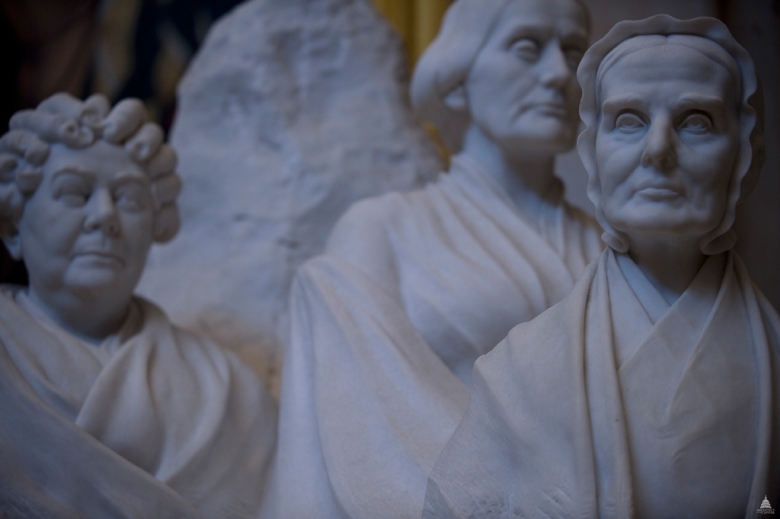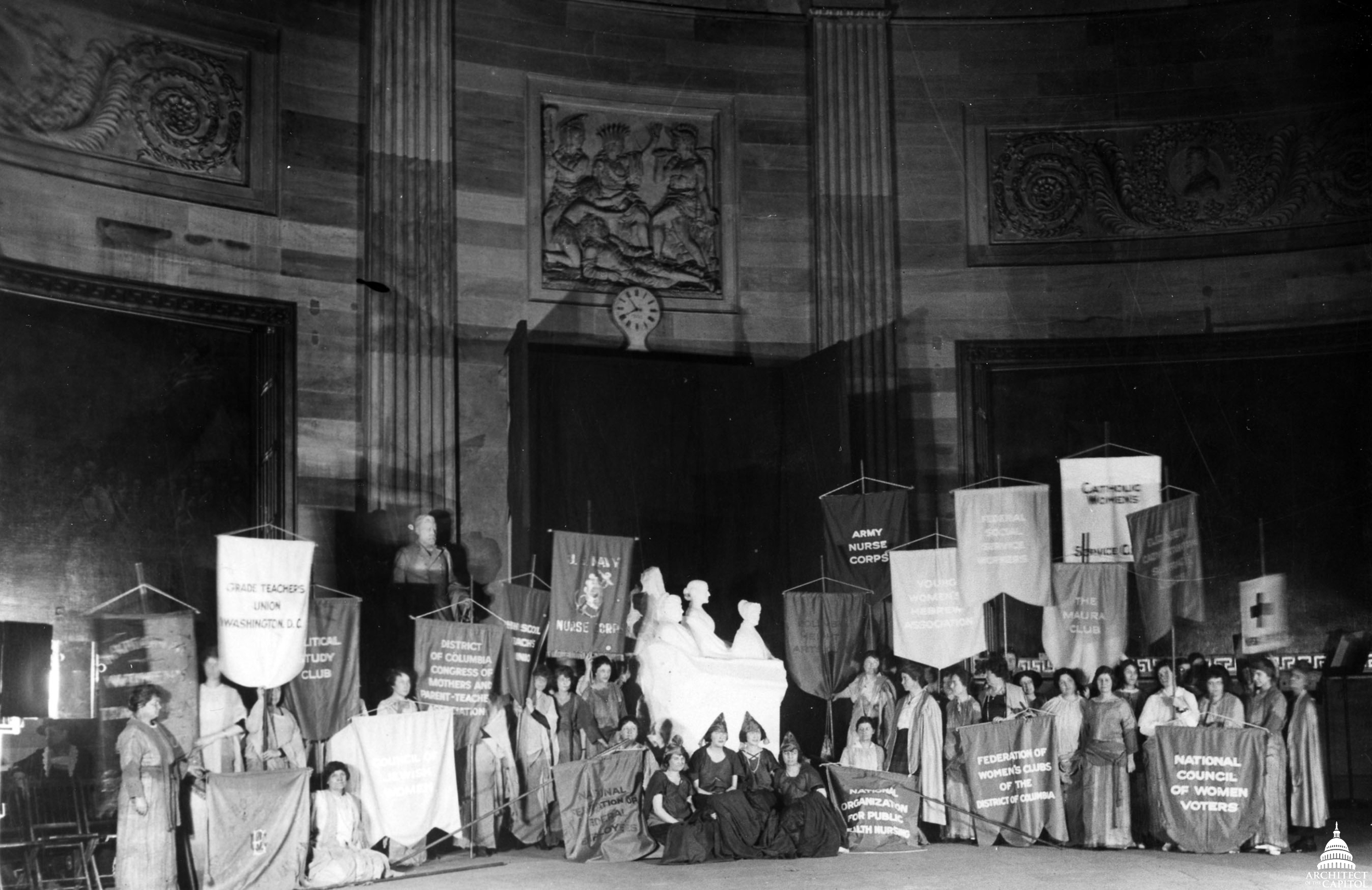
Figure 1 – Adelaide Johnson’s womens’ suffrage memorial in the US Capitol. Image from Flickr and in the public domain because it was taken by and employ of the US government.
Last Thursday, the Democratic National Convention for the first time in American history nominated a women as its standard bearer. Watching that historic event, my mind kept flashing to an image in marble (Figure 1). The statue made of Carrara marble is by Adelaide Johnson (1859-1955) and graces the capital rotunda. It was donated to the United States on February 10, 1921 by the National Woman’s Party to commemorate women’s suffrage. and was accepted on behalf of Congress by the Joint Committee on the Library on February 10, 1921. (see Figure 2)

Figure 2 – Dedication of the monument on February 21, 1921. In the public domain because of its age.
The statue shows four major figures of the women’s movement:
Elizabeth Cady Stanton (1815-1902), president of the National Woman Suffrage Association from 1865 to 1893; author of the woman’s bill of rights, which she read at the Seneca Falls, New York, convention in 1848; first to demand the vote for women.
Susan B. Anthony (1820-1906), abolitionist, temperance advocate, and later president of the National American Woman Suffrage Association, who joined with Stanton in 1851 to promote woman suffrage; proposed the constitutional amendment passed many years after her death.
Lucretia Mott (1793-1880), Quaker reformer and preacher, who worked for abolition, peace, and equality for women in jobs and education; organizer of the 1848 Seneca Falls, New York, convention, which launched the women’s rights movement.
But then there is this amorphous uncarved part of the monument – in the hazy background of Figure 1. Tradition holds that this piece of marble is reserved for the unknown champion of women’s equality – the first woman elected president of the United States.

I can’t wait
I’m with you [and her]!